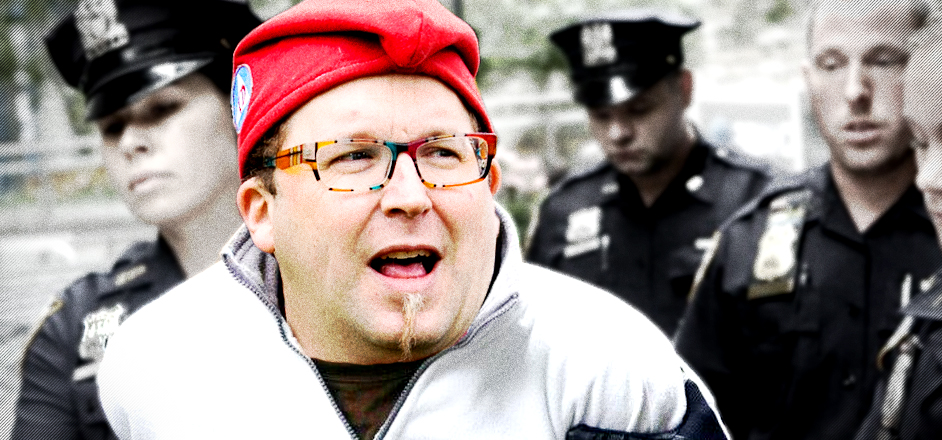Adam Eidinger is a well-known cannabis activist who played a pivotal role in the fight for recreational weed in D.C — often making headlines for his spearheading of Initiative 71, a campaign which legalized cannabis in the District of Columbia in 2015.
Unfortunately for Eidinger and the people of D.C., the excitement over the success of the initiative was short lived, as it was immediately threatened by the Harris rider which put a stop to the commercial sale of recreational marijuana. Because of it, cannabis is legal to smoke in D.C, but only on private property; and it’s illegal to buy anywhere (although some are copping rather overpriced swag that comes with a "free gift” of weed to get around the laws.)
Because of this, Eidinger’s fight isn’t over. Having been arrested close to 20 times already, he knows a thing or two about sacrificing oneself for the greater good.
When was your first arrest? What’s your attitude on it now?
"I owned a retail hemp shop that also sold pipes and things, and the store was raided in 2011 and eventually we had to agree to closing the stores under tremendous financial pressure, and the threat of going to jail for a while. We closed the stores in September of 2012 and it was after that I thought: I have nothing left to lose as an activist standing up for full legalization. They aren’t going to be able to take away my business because they already did."

Why did you first start the DCMJ?
"We had a patient cooperative here in D.C., which we started in 2010. We were forced to disband it in 2012 because the government here passed a very restrictive medical marijuana law. When we complained, they didn't listen to any of our recommendations. So, we felt so frustrated with the local government that we decided to start a political organization for marijuana.
"In 2013, we realized that we needed to go where the nexus of where the drug war was, and that was at the courthouse. At the courthouse, you had voters who were there as jurors, and you had the victims of the drug war — the people unlucky enough to be caught with marijuana. There was also the court system itself, the police and the prosecutors, the judges and court staff. We simply set up a little sign and stood there with clipboards, every day of the week. Every morning, at 8:00 a.m. in the morning, when everyone is showing up for court, we were standing out there. And people were like, 'Yeah, I think we should legalize it.'"
Why did you decide to start Initiative 71?
"When we were forced to close the stores in September of 2012. As an activist for full legalization, I realized that I had nothing to lose. They’re not going to be able to take away my business, because they already did … Our idea was simple; treat marijuana like alcohol."
What did u think when u heard about the Harris rider?
"The Harris rider did not come out until after our initiative was passed and submitted to Congress for final approval. Since D.C. is not a state, and Congress has an oversight rule, they act as our state government. And we don’t elect those people, we don’t get a say in our laws. The way it went through was very undemocratic, it’s very unfair."
What’s up with the red smurf hat you always wear?
"The DCMJ is a political voice in this city. We have a look, we make our own hats. We go around wearing these liberty hats — the hat is a liberty hat, it was originally worn by the Phrygian people of Africa. It’s a historic symbol of a freed slave."
Would you do it again?
"Absolutely yes, I mean I'm sitting here smoking a joint of weed that I grew myself now. I have no stress whatsoever about doing that. I’m looking it six plants that have just sprouted in the last week, auto-flowers that I'm growing in my windows."
Do you think that people like you in other states could also get initiatives passed?
"I think every state where voters themselves can do ballot initiatives has tried in some form, so now there is limited potential for the rest of the states. We really need lawmakers who either put it on the ballot, or pass the laws themselves, and that is going a lot slower. It's clear that lawmakers are much more influenced by the police and the establishment than the voters who are willing to change things."
Do you have any advice for those making their own legalization efforts?
"Fight for your ideals, not for the compromises, and you'll always get a better compromise."
How long until full legalization in the U.S.?
"I would say that would be 2021 at the soonest."




Leave a Reply